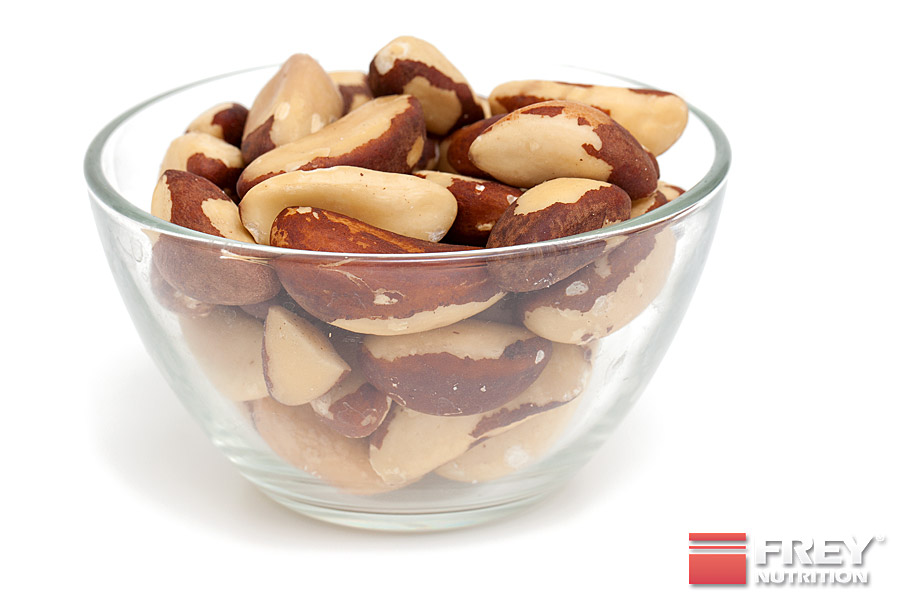WHAT EFFECT AN INCREASED FAT INTAKE DOES FOR THE ATHLETE!
SUMMARY: INCREASE IN LEAN BODY MASS AND TESTOSTERONE LEVELS SIMILAR TO PROHORMONES - WITHOUT INCREASE IN BODY FAT PERCENTAGE.
Researchers from New Zealand [1] investigated the effects of two different diets with the same calorie intake but different compositions of carbohydrates and fats.
Thirty-two well-trained cyclists with high weekly training volumes were switched from their normal mixed diet to either a very high-fat diet (50% of calories from fat, 37% from carbohydrates, 13% from protein) or a high-carbohydrate selection of foods (69% of total energy from carbohydrates, 15% from fat, 16% from protein). Both groups received the same amount of total calories.
The test period lasted three months. Body composition (fat-free mass, bone mass, muscle mass, fat mass) was determined using DEXA (dual x-ray absorptiometry), a very precise method. The results showed no differences between the two groups after three months. The body fat percentage remained unchanged for all of them. The athletes on the high-fat diet did not gain any body fat, nor did the group on the carbohydrate-based diet.
However, there was an important difference in body composition: the athletes with 50% fat in their diet were able to slightly increase their lean body mass. However, this was not muscle mass, but an increase in bone mass. It was also interesting that endurance performance (measured as maximum oxygen uptake capacity, VO2max) showed no differences between the two groups after three months.
The scientists concluded that the MUSCLE GLYCOGEN STORAGE could apparently be maintained to a sufficient extent even with a high-fat diet. What lessons can an athlete learn from this study? For years, nutritionists have been demanding that endurance athletes consume a massively increased carbohydrate intake. As the body's "super fuel," this macronutrient is particularly important for this group of athletes. Fats are still demonized by this group of scientists, on the grounds that glycogen stores in the muscles would decrease as a result of a reduction in carbohydrates.
However, athletes are often overwhelmed by the recommendations and are unable to consume the required amounts of energy during frequent or even daily training due to the large volume of food in the carbohydrate-rich diet. The response from athletes regarding performance on a carbohydrate-rich diet also varies greatly. Many report that after unsuccessful attempts to cope with huge amounts of carbohydrates, they were disappointed and switched back to a higher-fat diet. To their surprise, many of these athletes experienced improved performance and increased well-being.
A FAT CONTENT OF 20 TO 40 PERCENT IS THE OPTIMUM FOR IDEAL TESTOSTERONE PRODUCTION.
Based on the study cited, it can be assumed that endurance athletes can consume more fat without their performance deteriorating and without having to fear weight gain. The volume of food required for the high amount of calories in competitive sports is reduced by more fat, which makes it easier for athletes to cover their total energy expenditure without binge eating. A higher fat content even seems to make sense for bone mass. The authors of the study therefore advocate considering a higher fat content in the diet of endurance athletes. This is particularly true for female athletes, who are more likely to suffer from bone loss in old age than male athletes and for whom maximizing bone mass up to the age of 35 (the age with the highest bone mass) is particularly important.
It should be common knowledge by now that a higher fat content in the diet also has advantages for strength athletes. Studies have shown that a fat content of 20 to 40% of the total energy is optimal for Testosterone production in the body. If the total number of calories remains the same (i.e. if the carbohydrates are reduced accordingly as the fat intake increases), then an increase in body fat is not to be expected. On the contrary, the increase in fat-free muscle mass is accelerated by the increase in fat. It is sensible to consume monounsaturated (nuts, olive oil, rapeseed oil) and polyunsaturated fats (linseed oil, walnut oil, soybean oil).
However, anyone who still lives 365 days a year exclusively "fat-free" on dry rice, turkey, plain pasta, muesli and oatmeal (with skimmed milk, of course) should not be surprised if, as this study shows, no progress is noticeable. To clarify: the effect of the increase in testosterone levels when switching from a practically fat-free diet to a moderate fat intake (approx. 30% of total calories) is roughly in the range that can be achieved with medium doses of prohormones (androstenedione, norandrostenedione, etc.). So once again: the most effective supplements (namely fat!) are available in every supermarket for pennies and without customs problems!










